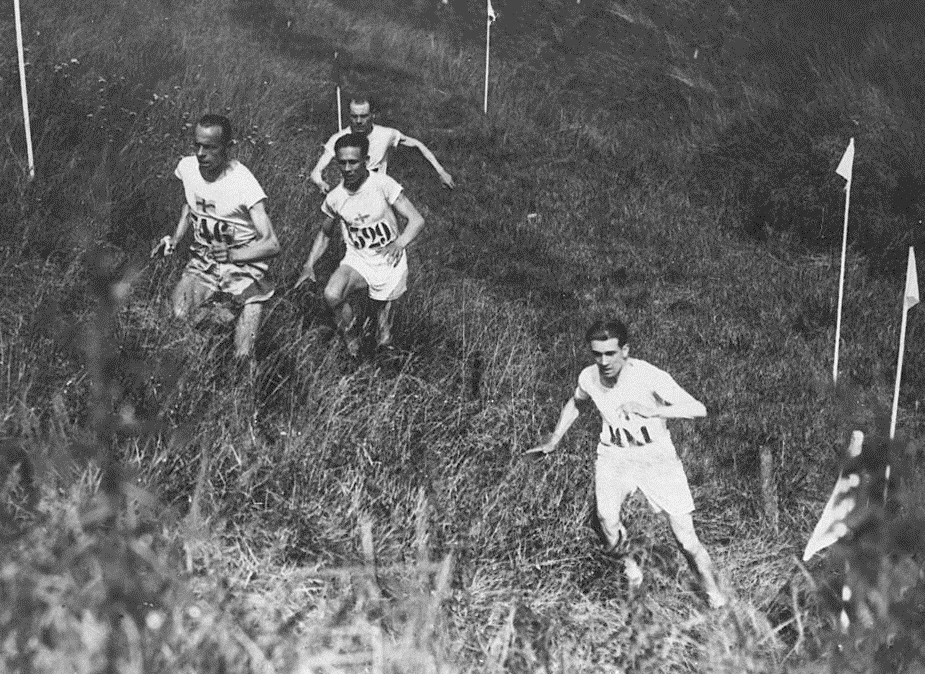Today in 1924, another one of these early Olympic events that went way off the rails: a very difficult and very strange mens’ cross country race.
This was the second time that Paris hosted the Summer Games, and the roughly 10 kilometer race became one of many showcases for Paavo Nurmi.
The Flying Finn crossed the finish line in just under 33 minutes, without a great deal of difficulty.
But for almost everyone else… it was a lot.
For one thing, Paris was seeing some of the hottest weather it had ever seen.
By some accounts the temperature on the day of the mens’ cross country race was north of 103 degrees Fahrenheit.
The extreme heat was a big reason why only 15 of the 38 competitors finished the race.
A newsreel of the race shows the fourth place finisher collapsing right after crossing the finish line, with the caption, “He was beaten by the sun.”
But even on a milder day, it would’ve been a challenging race.
Cross country running, by definition, means you have to account for obstacles in the landscape.
It’s not the same as running on a track.
But the very hilly course for this race took runners on stone paths that were covered in tall weeds and prickly thistle plants.
The course also featured unhealthy chemical fumes from a nearby power plant.
There were runners collapsing, runners bleeding, runners fainting and throwing up.
One guy started going the wrong way, and when race officials got him to turn around, he collided with another runner.
Long after the race was over, Olympic officials were scouring the course trying to find missing runners.
It’s not a good sign when the newsreel recapping the race can say merely that “there were no fatal consequences.”
Which was true for the runners, but not for their sport.
The cross country debacle of 1924, in which nearly everything had gone wrong, was the last of its kind in the modern Olympic Games.
Today in 1968, the end of an era.
The Philadelphia Naval Home, a retirement facility for Navy veterans, held a funeral with full military honors for one of its residents: Dexter, who was the last working Navy horse and spent his retirement roaming the grounds and asking the human residents for apples or sugar lumps.
The Book of Olympic Lists by David Wallechinsky and Jaime Loucky
Dexter, the US Navy’s last working horse, is buried in Philly (Philadelphia Inquirer)
Help our show stay on course as a backer on Patreon
Photo via Wikicommons

